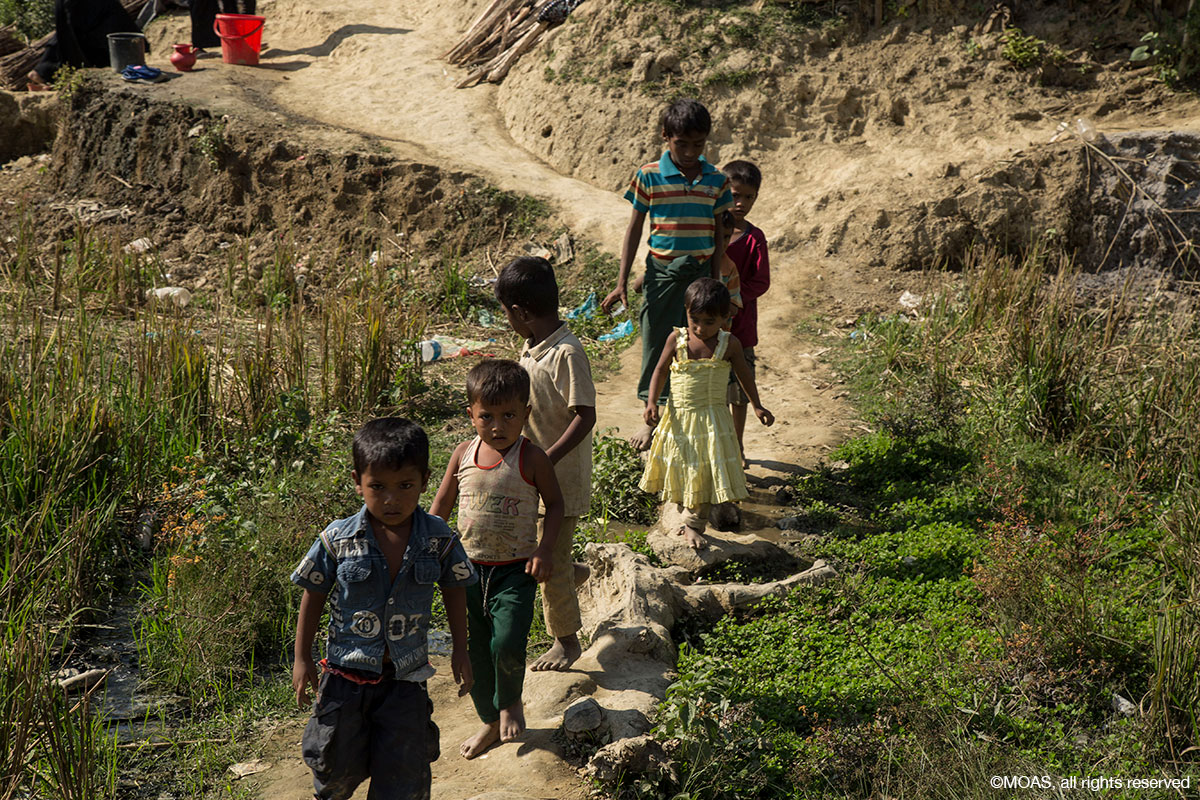
23 Jan Monsoon season spells trouble for Rohingya refugees
The plight of thousands of Rohingya refugees short on food, shelter and medical attention may be exacerbated by the upcoming monsoon season in southeastern Bangladesh, MOAS has warned.
The NGO has set up two medical aid stations near the coastal town of Cox’s Bazar to offer assessment and treatment to men, women and children of the Rohingya ethnic group – forced to seek sanctuary following persecution in neighbouring Myanmar.
Nico Pierni, director of operations, has been on the ground in Bangladesh since September liaising with local authorities and ensuring every effort is made to assist those in need.
He explained deforestation at the two hill-side refugee camps served by MOAS could spell disaster once the seasonal heavy rains begin.
“The massive challenge we expect to see here is the monsoon season,” he said. “Because of the way the shelters of these people are built and the fact that there are no trees anymore means the area is prone to landslides. Over the next three months, we’re expecting the weather to change.”
Paul Chamberlain, logistics director for MOAS, is spearheading the efforts to ensure staff members know how to respond in the case of a landslide occurring. MOAS is also in dialogue with another NGO based in the region to orchestrate responses.
“Paul has great experience,” said Nico. “He was with the Phoenix [MOAS’ search-and-rescue vessel] before and was one of the divers for MOAS when it was operating in Greece.”
MOAS, set up by Tangiers Group founder Christopher Catrambone and his wife Regina, arrived in Cox’s Bazar in September and inaugurated the first aid station in mid-October on the outskirts of the Shamlapur refugee camp.
A further aid station serving the nearby Uchiprang refugee camp was set up shortly afterwards.
The stations offer both primary and secondary medical services with a focus on antenatal, postnatal and paediatric care. Unofficial figures estimate the number of refugees housed at both camps to be in the region of 75,000-80,000.
Nico, Tangiers International’s regional manager for Asia, has been busy liaising with local authorities, fellow NGOs, MOAS staff members and the refugees themselves.
He said: “Immediately after arriving, we started to see the scale of Rohingya flowing across the border. When we made the first assessment, we could see that people were in a bad condition and really needed help.
“Within three days, we had organised food distribution (a bag with rice, salt, sugar, lentils and oil) and after that we made the first delivery in one of the camps, in Shamlapur.
“We delivered nearly 400 bags of food. During that time, we also started looking into setting up here in Bangladesh: hiring people, like doctors etc.
“When we had the compound, we started to build the first aid station. That was completed in no more than three weeks thanks to the hard work of our logistics people.
“To build an aid station which is fully operational is, of course, a big challenge. When you do this in a foreign country and, especially in a crisis environment, everything you do is amplified.”


